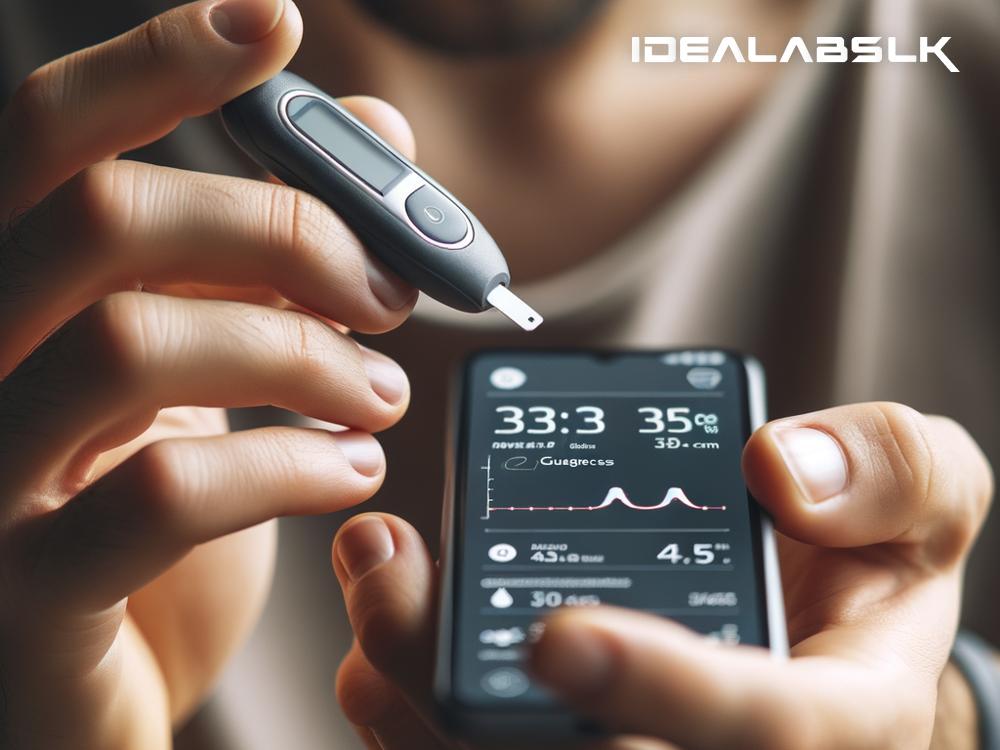Title: Keeping Diabetes in Check: How Mobile Health Technology Is Changing the Game
In recent years, technology has revolutionized the way we manage our health, especially for people living with chronic conditions like diabetes. Gone are the days when managing diabetes meant being tethered to cumbersome devices and making frequent trips to the doctor. Today, mobile health technology is empowering individuals to take charge of their diabetes management in real-time, from the palm of their hands. Let’s dive into how this tech-savvy approach is making lives easier for those dealing with diabetes.
First things first, what is this mobile health technology? Essentially, it refers to the use of smartphones, tablets, and other wearable devices loaded with apps and sensors that help monitor and manage health conditions. For people with diabetes, these tools provide a seamless and interactive way to keep tabs on blood sugar levels, track food intake, monitor exercise, and even get medication reminders. It’s like having a personal health assistant that’s always on call.
Instant Blood Sugar Monitoring
One of the biggest breakthroughs in diabetes care is the development of continuous glucose monitoring (CGM) systems. These wearable devices provide real-time updates on blood sugar levels, alerting users if their levels are too high or low. This immediate feedback allows for quick adjustments, such as taking insulin or having a snack, to stabilize blood sugar. No more finger pricks multiple times a day; it’s a game-changer for daily diabetes management and a big relief for those who dread those pesky needles.
Diet and Exercise Tracking
Managing diabetes isn’t just about monitoring blood sugar; diet and exercise play crucial roles too. Mobile apps make it easy to log food intake and physical activity, offering insights into how different foods and workouts affect blood sugar levels. This can help individuals make informed choices about their lifestyle habits. Plus, many apps come with a database of foods, complete with nutritional information, making it easier to stick to a diabetes-friendly diet.
Medication Reminders
Remembering to take medication or insulin injections on time is vital for keeping diabetes in check. That’s where mobile health apps come in handy, offering customizable reminders that ping your phone when it’s time for your next dose. This simple feature can significantly reduce the risk of missed medications, helping to maintain stable blood sugar levels throughout the day.
Data Sharing with Healthcare Providers
Perhaps one of the most significant advantages of mobile health technology is its ability to bridge the gap between patients and healthcare providers. Many apps and devices allow users to share their health data directly with their doctors. This means that instead of waiting for your next appointment to discuss your health, doctors can review your data in real-time and provide immediate feedback or adjust your treatment plan as necessary. It’s a more collaborative approach to healthcare, ensuring that you’re always on the right track.
Education and Support
Finally, managing a chronic condition like diabetes can feel isolating at times, but mobile health technology can also offer a sense of community and support. Many apps provide access to educational resources, tips for managing diabetes, and forums where users can share their experiences and advice. It’s a great way to learn from others who are navigating similar challenges and to feel supported in your journey.
In Conclusion
The rise of mobile health technology is transforming diabetes management, making it more interactive, responsive, and personalized than ever before. These advances are not only improving the quality of life for those with diabetes but also making it easier to prevent complications and enjoy a healthier future. As technology continues to evolve, we can only expect even more innovative solutions to emerge, further simplifying the daily management of diabetes and other chronic conditions.
For people living with diabetes, embracing these technological tools can mean taking a significant step towards empowerment, independence, and well-being. It’s a clear example of how technology is not just changing the face of healthcare but is also giving people the tools they need to take control of their health, one tap at a time.

